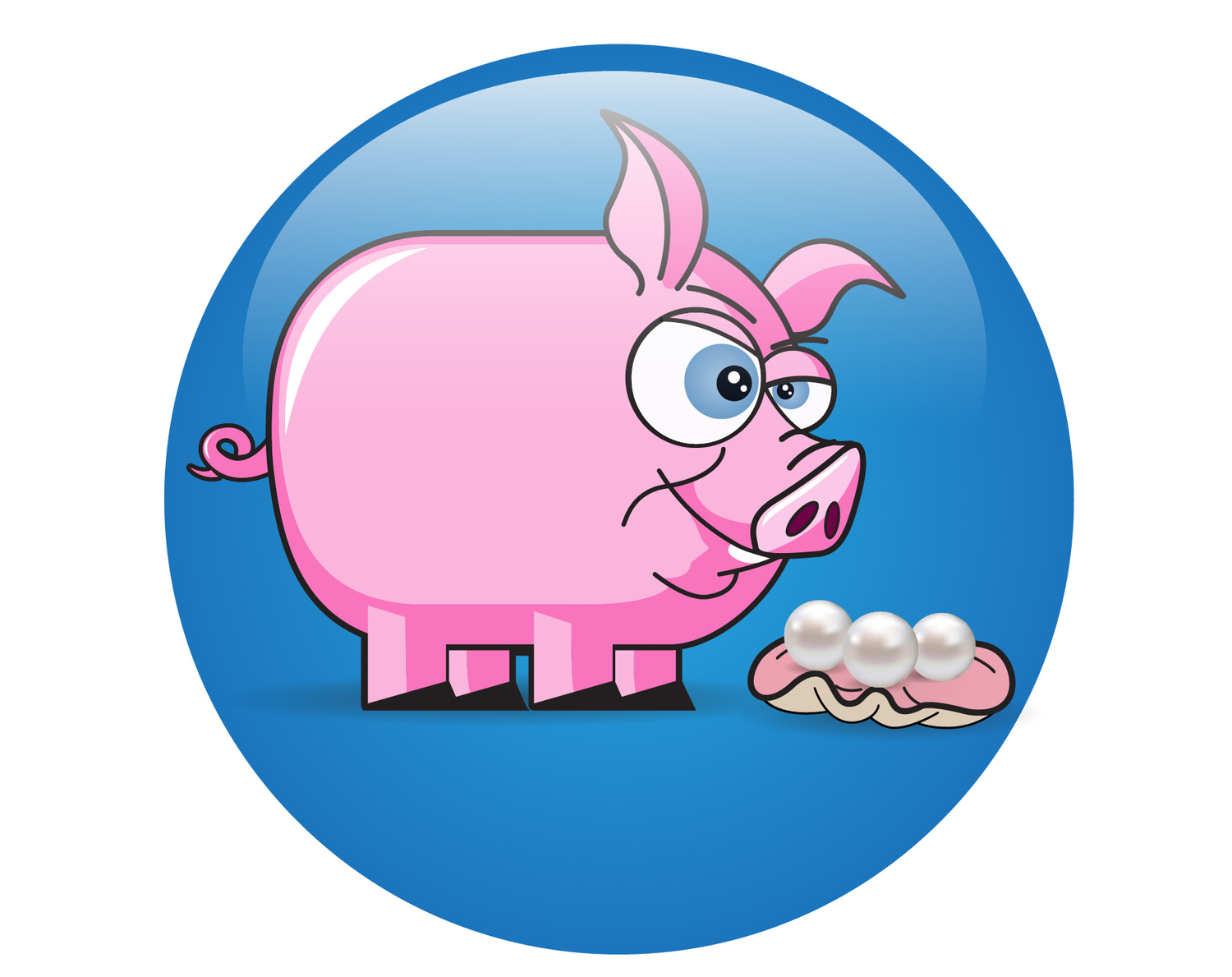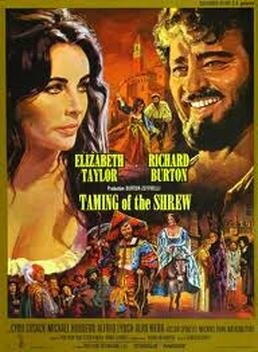The Taming of the Shrew by William Shakespeare - PPPP
/Lucentio, the son of a wealthy merchant, arrives in Padua, Italy to study philosophy and comes across a young woman named Bianca. She is a vision of loveliness and grace. He falls for her instantly and wants her desperately. Her father, however, has declared that no one can marry her until a husband has been found for her older sister, Kate.
Kate is the titular shrew. She is short-tempered, loud, and prone to physical violence. She has publicly declared that if she had a husband, she’d keep him in line by hitting him over the head with a stool, scratching his face, and treating him like a fool.
Petrucio arrives in Padua with money on his mind. He wants a bride that brings with her a massive dowry and when a suitor of Bianca offers to introduce him to Kate, despite warnings of her fiery temper, Petrucio calls on her and her father at once.
While there is a lot going on in The Taming of the Shrew including disguise, deception, and a play within a play, the main plot revolves around Petrucio trying to break Kate’s spirit as if she were a wild horse or falcon, and in doing so transforming her into an agreeable, obedient, happy wife.
Full disclosure #1: I read the CliffsComplete version of this play, which in addition to the play with line-by-line glossary in the margins, includes an introduction to Shakespeare and his time, summaries of each scene before such scene, and commentary after each scene. This was necessary because I wouldn’t have had the faintest fucking clue what was going on otherwise. I barely understand things written these days, let alone Early Modern English from the 16th century.
Full disclosure #2: Thanks to the commentary, I learned that, “As almost all playwrights of the time, Shakespeare used other sources to create his plays, but the difference between Shakespeare and other playwrights is that he intertwined his stories with an alchemy that created a new product infused with a golden wit and insight that to this day has not been equaled.” Converting this into the plainspeak of someone who has not dedicated his entire life to studying Shakespeare and therefore doesn’t have to worry about inadvertently admitting that he’s wasted all his time, we get: Shakespeare was a cheater. He stole existing plots for his stories, but spiced them up with witty wordplay and dialogue.
To be honest, I was a little disappointed by this fact, but I suppose that everything builds on something before it, at least to a degree. And despite this, there is of course much to love about Shakespeare.
In The Taming of the Shrew, he has crafted two infamously iconic characters in Petrucio and Kate. Petrucio is a rebellious maverick. If he were a woman, he’d be called a shrew. When he learns of the prospect of taming Kate, his focus changes from money to conquest. Kate is equally rebellious and more shrewd than shrew. (How you like that, Shakespeare?!) As such, the back and forth, the battle of wills, and the climax and resolution of their tension make for some very entertaining dialogue and unforgettable scenes. And ultimately, both prove themselves to be much more complicated and nuanced than one would have thought at first sight, making for intriguing character analysis.
With respect to Shakespeare’s patented puns and suggestive double-entendres, the play is chock full of ones that would have apparently had Elizabethan audiences in stitches, but worked less well on me because I had to match terms with the glossary and slowly piece the witticisms and obscenity gems together. I think that once you get used to the language, though, you’ll find yourself in a linguistics gold mine. Having said that, this was likely only his 2nd of 44 works, so he may have still been cutting his teeth.
Incidentally, while I don’t think this had anything to do with wordplay, according to the glossary, “Cock’s passion, silence!” means “Christ’s passion, silence!” I had no idea that “Cock” was a synonym for “Christ.” Weird. And even weirder that we’ve let it fall out of favor. I feel like we’re disrespecting Shakespeare by not referring to Christ as Cock more often. Let’s rectify this, people!
Along this line, there are still many lol’s to be had. I enjoyed a couple early on thanks to an absurd outburst and an outrageous threat by Kate, as well as a Massive LOL at the beginning of the taming’s climax. Further, I laughed a lot while reviewing the highlights of each scene when writing this review.
The remainder of my lol’s were unfortunately not inspired by Shakespeare, but rather by the glossary, scene summaries, and commentary provided by the good people of Cliffs. For instance, they went through the trouble of putting an entry in the glossary for “chat,” informing us that it means “conversation.” Sarcasm alert! Thank you so much for translating that esoteric bit of 16th century English. It is definitely not a word that everyone uses all the fucking time. I actually assumed that it was an antiquated word for one of a cows fifteen stomachs and was totally clueless. Thanks for solving that arcane mystery! Fuckin’ douches.
They kept the laughs coming by choosing to not translate such terms as resteth, bauble, and crupper. Fortunately, I’m pretty sure that these are indeed antiquated terms for three of a cows fifteen stomachs. And it made sense contextually, so I’m going with that.
Spoiler Alert #1: I discuss the final scene of the play below, and as such, the answer to the central question, if there is one, is revealed. Do not read on if you do not already know how things turn out and would like to keep it that way.
Spoiler Alert #2: I also discuss misogyny below. If you do not find discussions of misogyny to be entertaining and hilarious, you might want to bail now. For those jumping ship, I leave you with this parting gift: The Japanese put the “miso” in “misogyny”. Get it? Miso, like miso soup. Hilarious, right? It’s also pretty misogynistic here. But slowly getting less so. Kinda.
The last lol that I would like to discuss arose in relation to Kate’s so-called ‘submission speech’ during the last scene where she has been proven to be tamed. Many have labeled Shakespeare a misogynist because of it. The speech boils down to her saying that a foul-tempered woman is like a muddy fountain; no one will drink from it. Further, because men provide a safe and secure home etc., being lovely and obedient is the least that women can do in return. She adds that she’s ashamed of women who offer war when they should kneel for peace. That the fairer sex should be fair.
There are a lot of ways to interpret the speech (as well as everything about this play), but this interpretation in particular made me laugh out loud: “The monologue may be interpreted as an almost subversive manifesto, teaching women how to dominate their husbands by appearing to be subservient. … Just as Petruchio tamed Kate by taking on her shrewish attitude and reflecting it back to her, Kate may be turning the tables on Petruchio, taming him in the same way.”
This is such an insane, irrational stretching of analysis that you have to laugh at it.
Why is this commentator so desperate to twist this into a win for womankind? Why can’t you just take it at face value? The Taming of the Shrew is a farce that is meant to inspire laughter via absurdity. That’s all. It’s nutty entertainment. But interpreting it as Kate taming Petrucio by doing exactly what he wants and exactly what commands is even nuttier. It makes you the joke. Stop being shrewish and start being silly. If there was a story about a woman taming a man in a similar fashion, it would be just as funny. Well, if it was written by a man, anyway. Boo-yah! How’d you like that women-aren’t-funny slam?! Totally, jk. Women are plenty funny. Especially those who laughed at that joke. It was a joke. It’s okay to laugh at jokes cause they’re not serious.
Incidentally, whoever interprets the ‘submission speech’ as above, totally puts the ‘anal’ in ‘analysis.’ Boom, again! I’m on fire today. Thanks, Shakespeare!
To sum up, The Taming of the Shrew is a classic farce that offers humorous dirty puns that are probably pretty damn funny to people with a good grasp of Early Modern English. It’s still worth a read for those of you who, like me, have not been too too exposed to Shakespeare. Further, the Bard has created a pair of entertaining, thought-provoking, and nuanced characters in Petrucio and Kate who are worthy competitors who in the end make worthy companions. I highly recommend this play to anyone interested in Shakespeare’s comedies. 4 Pearls.
Bonus Quote: Cock’s passion, silence! I hear my master.
Lastly, now that I’m familiar with the story, language, and characters, I figured there was a good chance that watching a few productions based on it would provide some lol’s. Here are the results.
The Taming of the Shrew (1967) starring Elizabeth Taylor & Richard Burton
Not funny. At all. Except for the Massive LOL part that I mentioned above. There’s no screwing that up.
Kiss Me Kate (1953), a musical starring Kathryn Grayson & Howard Keel
Not funny. It’s based on and infused with some Taming of the Shrew, but it’s very much its own musical abortion. Exaggerated acting, headscratching developments, and irritating song & dance numbers. Really bad. Only watch if you’re really into tap dance. Most egregiously, they were unable to include my beloved Massive LOL part, so I only laughed once. Here’s a couple pictures of that part. The only saving grace.
Ten Things I Hate About You (1999) starring Julia Styles & Heath Ledger
I don’t know if it’s because the first two sucked so bad or what, but this was great. I laughed a lot, and I even shed a few tears. It was better than Shakespeare. That must sound nuts, but it’s true. Having said that, remember that the key to happiness is low expectations, so do your best to Jedi mind trick yourself into thinking it’s just another high school rom-com. Cause I went into it thinking it would be shit. Incidentally, the script was written by Kirsten Smith & Karen McCullah, two hilarious & brilliantly shrewd women.







